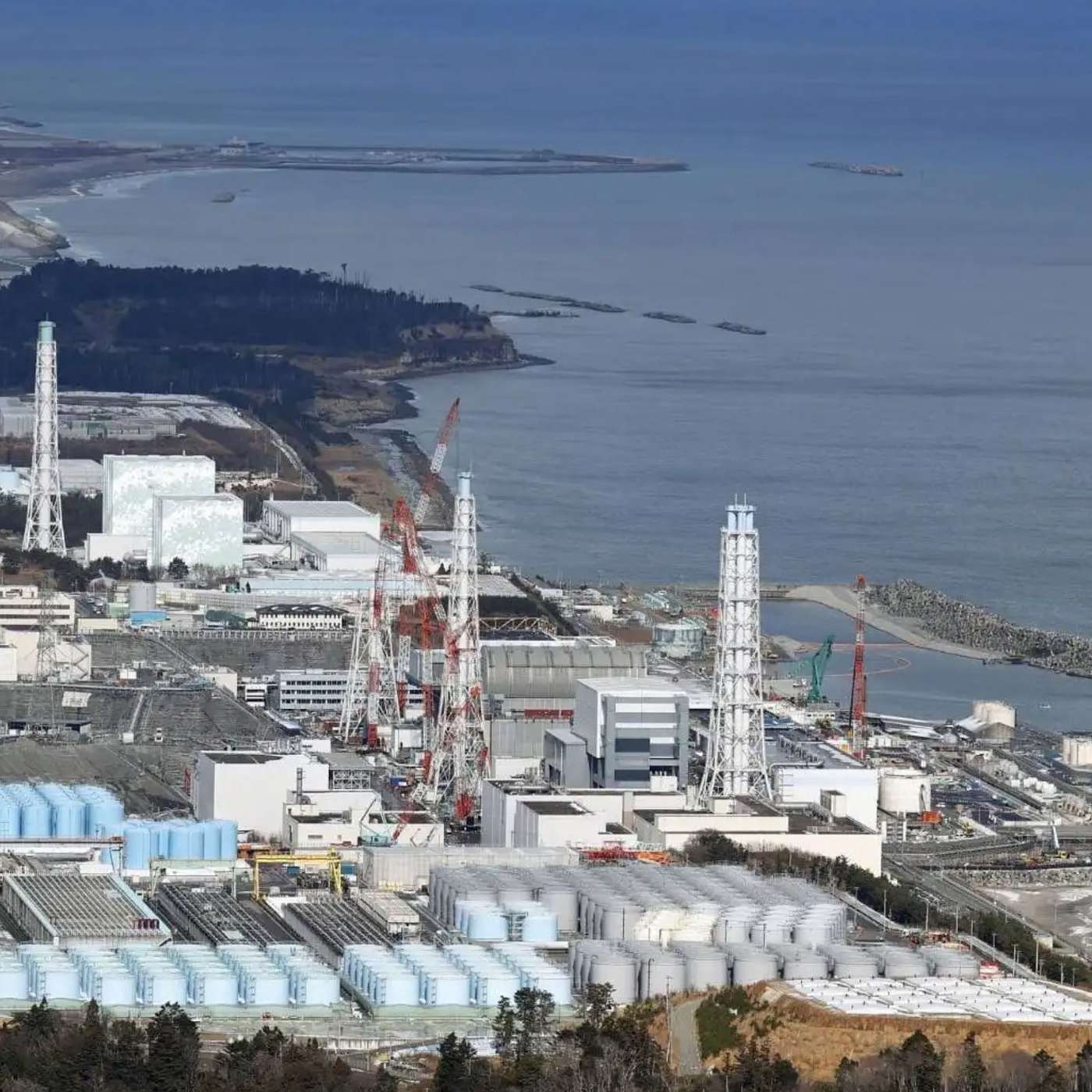Discover Energy Current: In Search of Net Zero System
Energy Current: In Search of Net Zero System

Energy Current: In Search of Net Zero System
Author: Enegy Current
Subscribed: 4Played: 143Subscribe
Share
© 2024 Energy Current: In Search of Net Zero System
Description
To address climate crisis, we have to pursue an energy system based on renewable energy and other low carbon technology. Through reasonable discussions with a variety of researchers from institutes and think tanks, this podcast informs curious minds of poliy debate on sustainable energy transition and global climate governance. The podcast is now being updated for its second season. The first season was called the REEI Energy and Climate Podcast.
94 Episodes
Reverse
Send us a text There are a number of reasons why we have to halt the climate crisis. One of them is public health. In this episode we discuss these important questions: How do we rethink the future of healthcare when tackling climate change is only one of many challenges?What impacts will the COP28 UAE Consensus make on climate actions in reducing carbon emissions of healthcare sectors across the world?As one of the most trustworthy voices in the society and the key players in providing healt...
Send us a text To achieve a 100% renewable energy system worldwide by 2050 affordable or not? Apart from the maturing technology, like solar PV and wind power, are we too late to develop some alternative technologies such as carbon capture and storage, direct air capture, geoengineering, and small modular nuclear reactor? With the tightening time window to control carbon emissions in order to keep the global temperature rise on average by 2100 well below 2 degree Celsius, what can policymaker...
Send us a text Since 2020, not only some national governments but also many large multinational companies have announced their climate pledges - reaching net zero emissions by 2050. Among them are some oil and natural gas giants, such as BP, Shell, Chevron and ExxonMobil, which are the majors in the industry and the top contributors of the carbon emissions across the corporate world. • How do we understand the majors’ mid-term and long-term climate strategies? • Shall the end-us...
Send us a text There are two major economic measures to reduce carbon emissions of energy system, carbon pricing and industrial policy. Which one is better to deliver climate targets? What do the historical experiences of both emission trading systems and industrial policy in the E.U., China and the U.S. tell us? When competition rather than cooperation becomes the keyword in the new world economic order, will the Race to the Top industrial policy have a better chance to cut the global ...
Send us a text With both population and economy growing, Africa shall pursue a leapfrogging strategy in achieving the net zero energy system in the next three decades. However, some significant factors need to be addressed, like upscaled investment, accelerated deployment of low carbon energy technology, and international financial support. In this episode, Jean-Benoit Fournier, a Canadian expert on climate financing and strategy, shares his observations and thoughts based on his...
Send us a text For years China has dominated in the global supply chains of critical minerals, which are crucial to deploying low carbon energy technology and accelerating the global energy transition. Particularly, China's dominance is very apparent in the global supplies of rare earth, graphite, manganese and cobalt. These minerals are critical to the production of electric vehicle batteries and wind power turbines. However, the food and oil & natural gas supply chains disruptio...
Send us a text While the world enters a de-globalization era and the relationship between China and the U.S. turns from bad to worse, policy makers from many high-income countries prioritize de-risking the supply chains and diversifying trading activities, such as increasing the security of the critical minerals supply. Will this big policy change hold back the low carbon energy technology deployment in terms of pace and cost-effectiveness?Could the restructuring accelerate the formatio...
Send us a text U.S. – China climate cooperation is a crucial issue when we talk about tackling climate crisis. However, the bilateral relationship has been declining in the recent years, particularly since 2020. Under such a difficult situation, where will the U.S.-China climate and clean energy collaboration go? What lessons can the past cooperation experience imply? The G7 Summit in Japan last week may suggest that the 7 most developed economies are coordinating their industrial policies to...
Send us a text Nuclear power plays an important role in the energy system in many big economies around the world. There are many debates related to this energy source, from energy security to addressing climate change to environmental and social justice. While some countries, like Germany, shut down the last nuclear power plants, others, like China, are still building new ones. Based on a new study published in the academic journal, Nature Energy, Ms. Lyssa Freese, a scientist from the Massac...
Send us a text How to address public crisis implies a nation’s complicated institutional setting of economic, political, and cultural preferences and tolerance. A society’s resilience in mitigating the crisis, from environmental pollution disasters to global pandemics to climate change, depends on the interaction between crisis and evolving institutions. In other word, it relies on whether policymakers are able to learn lessons from crises and renew institutions in order to face future challe...
Send us a text To achieve a 100% renewable energy system worldwide by 2050 affordable or not? Apart from the maturing technology, like solar PV and wind power, are we too late to develop some alternative technologies such as carbon capture and storage, direct air capture, geoengineering, and small modular nuclear reactor? With the tightening time window to control carbon emissions in order to keep the global temperature rise on average by 2100 well below 2 degree Celsius, what can policymaker...
Send us a text The intense rivalry between the U.S. and China, the ongoing brutal war between Russia and Ukraine, and the potential geopolitical conflict risk in the South China Sea remain the big challenges to addressing the climate crisis via productive international cooperation. Under the complicated domestic and international situations and uncertainties, how can we understand the climate policy and actions in both the United States and China? Where could the fragile relationship between ...
Send us a text The intense rivalry between U.S. and China, the ongoing brutal war between Russia and Ukraine, and the potential geopolitical conflict risk in the South China Sea remain the big challenges to addressing the climate crisis via productive international cooperation. Under the complicated domestic and international situations and uncertainties, how can we understand the climate policy and actions in both the United States and China? Where could the fragile partnership between the t...
Send us a text Indian Zero Emission Vehicles (ZEV) adventure plays a significant role in both providing sustainable mobility services and materializing its long-term national carbon neutrality goal. What does the road transport decarbonization in the past ten years inform its future ambition? Under the various challenges, from the global energy crisis, and supply chain restructuring, to economic recession and big powers competition, how can India strike a balance between climate actions and e...
Send us a text Despite the high expectation in decarbonizing the fossil fuels sectors for years, Carbon Capture and Storage (CCS) has not been scaled up. In the next 5-10 years, will comprehensive technology be a game changer in global climate mitigations? Can the oil and gas giants in the Middle East countries sustain their business in the future by both producing carbon as usual and sinking carbon as a world carbon storage hub? May carbon markets, either regional or national, make CCS busin...
Send us a text Compared to Battery Electric Vehicles (BEV), Fuel Cell Electric Vehicles (FCEV) have lagged during the electrification of the road transport sector across the world in the past ten years. Under the new context related to technological competition among economic powers, the energy crisis enhanced by the Russia-Ukraine war in Europe, the global supply chain security of critical materials in BEV manufacturing, as well as the greater role of hydrogen in energy transition, its worth...
Send us a text Enacted in 2021, China’s National Carbon Market based on tradable performance standard, was promoted as a new effort to engage with international climate policy. It’s too early to assess the emissions reduction impact of the so-called biggest carbon market in the world. Despite of the essential differences of market design, contextual institutions and the mild effects of the California’s system in delivering carbon emissions reduction and environmental justice, Professor Alex W...
Send us a text Japan's Green Transformation Plan is the latest national strategy in pursuit of energy transition and carbon neutrality by 2050. As a major economy with probably the highest energy efficiency standard and greatest dependency on fossil fuels import around the world, Japan faces a range of challenges. Professor Jusen Asuka from Tohoku University in Japan discusses how the new policies on offshore wind and solar PV may play a big part and why the next generational nuclear power te...
Send us a text Indian Zero Emission Vehicles (ZEV) adventure plays a significant role in both providing sustainable mobility services and materializing its long-term national carbon neutrality goal. What does the road transport decarbonization in the past ten years inform its future ambition? Under the various challenges, from global energy crisis, supply chain restructuring, to economic recession and big powers competition, how can India strike a balance between climate actions and energy se...
Send us a text The mutual benefits of economic growth between China and Australia had pushed the bilateral cooperation on science and technology, particularly the climate related technology, to a new level until a few years ago. However, the relationship has been deteriorating since the outbreak of the COVID-19 pandemic. What does the dramatic change mean to Australian international scientific collaboration in the region? Do the sea changes of geopolitical situation between the t...
























